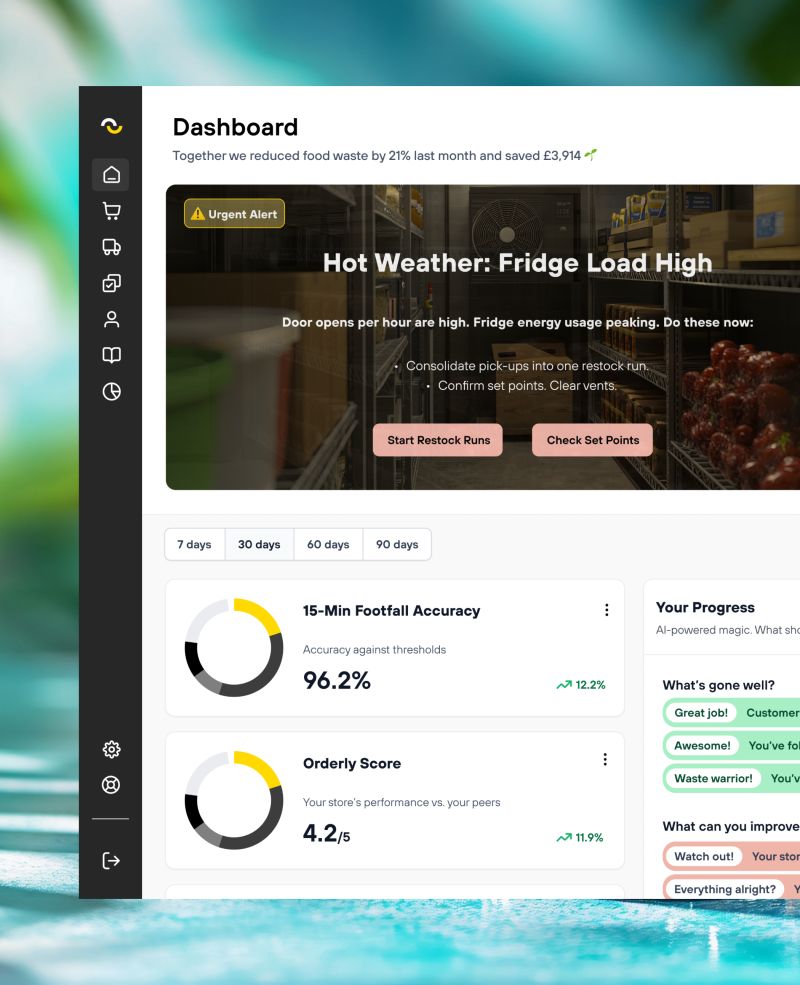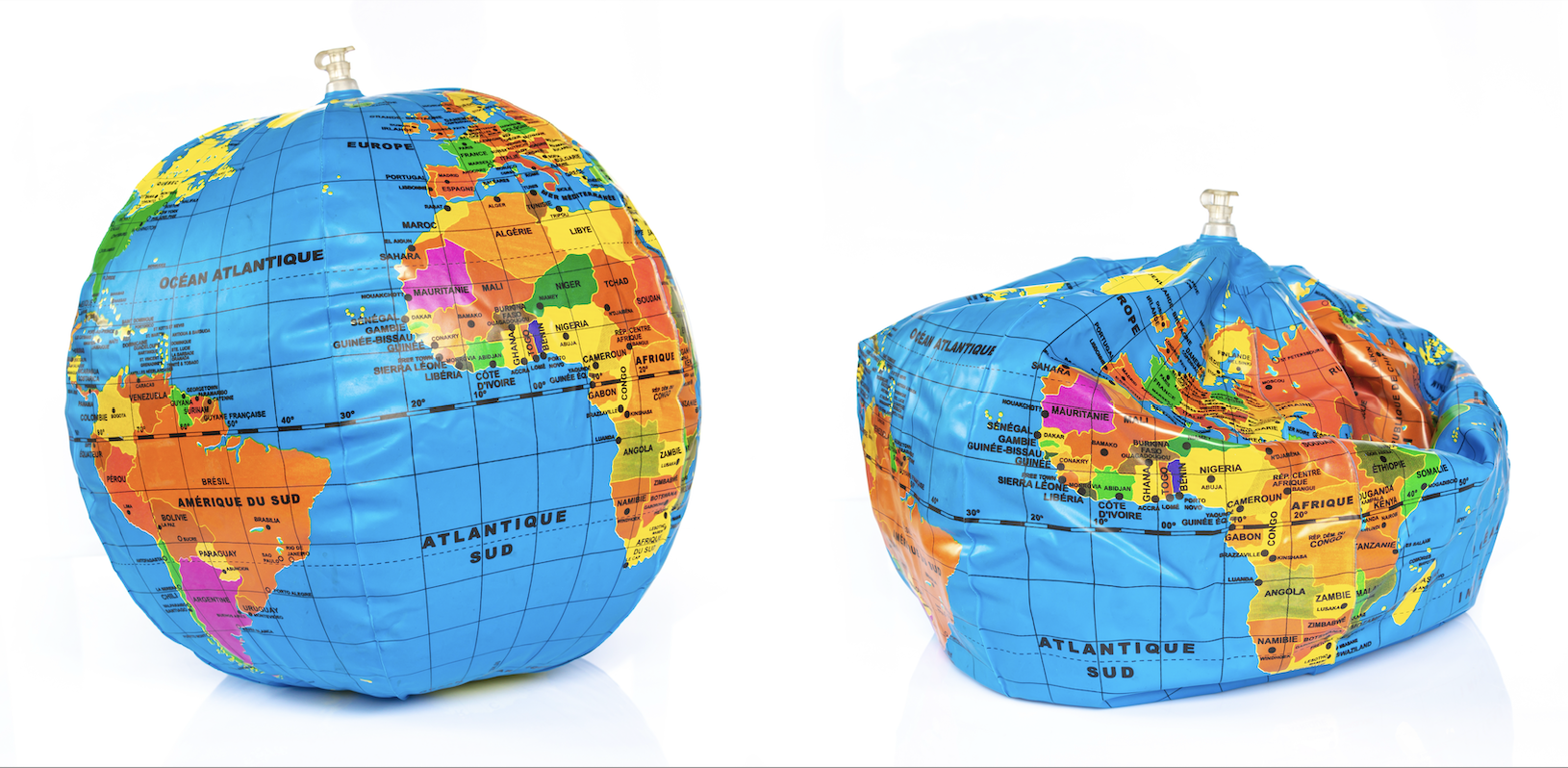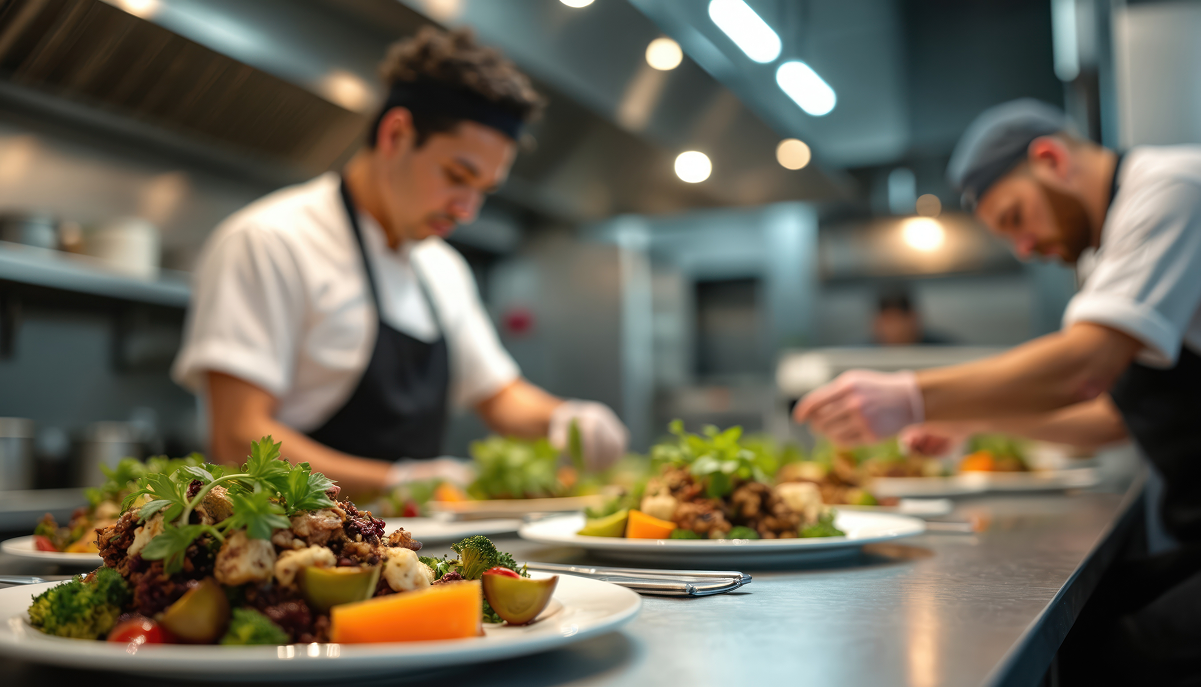You can't go too often without spotting supermarkets in the press, and it's not always a glowing write up. The difficult weather conditions in Spain and Morocco for the supply issues following heavy rainfall, thunderstorms and snow storms in the region mean that recent shelves are a little barer than we'd like, with some food not making it to stores, while in the background, studies are looking into if the locations of supermarkets can impact our diets and consumers are suggesting that supermarkets are not doing enough about waste, with an Ubamarket study sharing that 77% say that it is supermarkets and manufacturers that are causing the most pollution.
Yet WRAP estimates that 70% of food waste comes from households (6.7 million tonnes), 16% from manufacturers, 12% from hospitality and food services, and 2% from the retail industry.For supermarkets, there are a myriad of challenges facing every department, but when it comes to waste, what are they doing? We wanted to explore and summarise some of the initiatives the major supermarkets have undertaken.
Operations
Tesco has implemented several measures across its stores to significantly reduce food waste. Notably, since 2009, no food waste from Tesco's UK operations has gone to landfill. This initiative demonstrates Tesco's commitment to minimising its environmental footprint by ensuring that surplus food is either consumed, recycled, or repurposed rather than wasted.
Aldi also strives to prevent waste within its operations. Measures include price reductions on products nearing the end of their shelf life, removal of "best before" dates on select fresh produce to extend their usability, and the rollout of a redistribution programme to donate surplus food to local communities.
Operationally, Morrisons led the way with the "Naturally Wonky" range that addressed food waste at the source by selling fruits and vegetables that may not meet the standard size or appearance criteria but are perfectly edible. (WRAP studies indicate that In the UK, a household of four people wastes, on average, £1000 worth of food that could have been eaten every year, with fruit and veg being the greatest part of that wasted food). This initiative reduces waste and provides farmers with an alternative market for their produce.
Not only this, but Morrisons ensures that products nearing expiry are offered at reduced prices to encourage purchase and consumption, reducing operational food waste by 5,000 tonnes with a target of a 50% reduction by 2030 from a 2016 baseline. It's also important to remember their work during the pandemic. Utilising Orderly supply chain technology, Morrisons quickly set up food box delivery in 2020, a set-up that took which took just six days. thanks to Orderly's team and agility.
Supplier Work
Working closely with suppliers, Aldi flexes agreements to manage crop fluctuations, supporting growers through challenges such as crop failures or gluts. This flexibility helps minimise waste right from the supply chain.
When redistribution is impossible, Morrisons adheres to the waste hierarchy by sending food waste to anaerobic digestion to generate renewable energy, aligning with its commitment to zero waste to landfill by 2025.
Collaborating closely with suppliers, Tesco strives to cut waste at the source. The supermarket has introduced innovative solutions, such as selling 'wonky' fruits and vegetables, which might otherwise go unsold due to their appearance, and accepting bumper crops from growers. These efforts help reduce food waste before it even reaches the store, highlighting a proactive approach to sustainability.
Community Engagement
Tesco works with local food banks, charities, and food redistribution groups to donate any good food that is not sold by the end of the day. This strategy not only addresses food waste but also contributes to community welfare by supporting individuals in need.
Since partnering with Neighbourly in 2019, Aldi has donated over 17 million meals to local groups, expanding food donation programs to include weekends and trialling the donation of chilled foods to increase the variety and volume of donations.
Customer Involvement
We know that of what we know is food waste, 6.4 million tonnes (67%) could have been eaten. In UK households, it's estimated that this number climbs to as high as 70%.Recognising customers' roles in the fight against food waste, Tesco offers tips, recipe ideas, and food storage advice to help consumers minimise waste at home. This educational approach empowers customers to make informed decisions and reduce food waste.
Aldi promotes WRAP's Love Food Hate Waste campaign through various channels to educate customers on reducing food waste at home. Additionally, Aldi participates in Food Waste Action Week to highlight the relationship between food waste and climate change.
Morrisons is focused on improving product labelling and storage instructions. An example includes changing "use by" dates on milk to "best before" dates to reduce milk wastage, encouraging customers to use their judgment on the product's freshness. The studies on labelling correctly suggest this has a huge impact and could 'significantly reduce the 1.8 million tonnes of food thrown away each year.'
Innovation
Tesco is keen on exploring and embracing new technologies and innovations to further reduce food waste. Examples include utilising insects fed on food waste to create soy-based animal feeds and emphasising transparency to help growers take action. Tesco has set ambitious targets to halve food waste in its operations by 2025, in its supply chains by 2030, and to reach net-zero emissions across its supply chain and products by 2050.
Aldi is committed to reducing food waste by 20% by 2025 and aiming to halve it by 2030, aligning with Courtauld 2030 and UN SDG Champions 12.3 goals. These ambitious targets underscore Aldi's dedication to minimising the environmental impact of food waste and addressing food poverty.
Morrisons is making significant strides towards halving food waste by 2030 and achieving zero waste to landfill by 2025, showcasing a comprehensive approach to sustainability and responsible resource management. They are supported by Orderly and are focused on D2C solutions that reduce waste through initiatives such as wine boxes, alcohol, flowers with gift messages, and even a recipe box subscription service called 'Eat Fresh'.
Use Orderly and get your business fighting waste at the source
The right technology can fix the future of food and the challenges faced around supply. How we access, consume and dispose of food will change in the future, but savvy businesses are getting ahead of the curve now.
Orderly are actively working to increase responsibility within the food and beverage supply chain to reduce waste, and make the world better for more people. If that sounds like something you’d like to benefit from, speak to us today.










.svg)

.svg)
.svg)